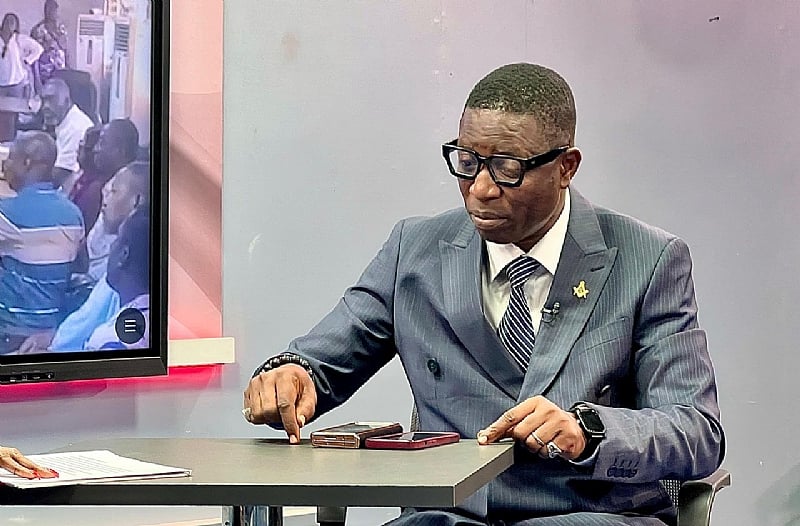The ongoing impeachment proceedings against Chief Justice Gertrude Torkonoo have sparked a heated debate in Ghana, with the ruling New Patriotic Party (NPP) demanding public hearings and the opposition National Democratic Congress (NDC) staunchly defending the in-camera process. Dr. Rashid Tanko Computer, Acting CEO of GIFEC and Deputy Director of Elections for the NDC, has vehemently criticized the NPP’s call for public proceedings, labeling it hypocritical and detrimental to Ghana’s democratic institutions. He argues that subjecting a sitting Chief Justice to public questioning would not only be disrespectful but would also undermine the integrity and sanctity of the judiciary.
Dr. Tanko contends that the framers of the 1992 Constitution deliberately stipulated in-camera proceedings under Article 146 to protect the dignity of the judicial office and ensure a fair and impartial process. He accuses the NPP of attempting to politicize the matter and gain political mileage by sensationalizing the impeachment proceedings. He questions the NPP’s motives, suggesting that their insistence on public hearings might be a veiled attempt to conceal information from the Ghanaian public. Dr. Tanko’s comments reflect the deep political divisions surrounding the impeachment process and underscore the tension between transparency and the need to protect the integrity of the judicial system.
The NPP’s demand for public hearings stems from their belief that transparency is paramount in such a significant matter involving the head of the judiciary. They argue that public scrutiny would ensure accountability and build public trust in the process. However, the NDC counters that the in-camera proceedings are designed to protect the Chief Justice from undue public pressure and potential prejudice, allowing for a more objective and impartial assessment of the allegations against her. This fundamental disagreement on the nature of the proceedings highlights the inherent tension between the principles of transparency and the need to preserve the integrity and independence of the judiciary.
Dr. Tanko’s accusations of hypocrisy against the NPP are rooted in his assertion that the party’s stance on transparency is selective and politically motivated. He points to previous instances where the NPP supported in-camera proceedings in sensitive matters, arguing that their current demand for public hearings is inconsistent and driven by political expediency rather than genuine concern for transparency. This accusation further underscores the partisan nature of the debate and the difficulty in separating political considerations from the substantive legal and constitutional issues at stake.
The ongoing controversy surrounding the impeachment proceedings raises critical questions about the balance between transparency and the protection of judicial independence. While public hearings might enhance transparency and public engagement, they also carry the risk of politicizing the process and undermining the dignity of the judicial office. Conversely, in-camera proceedings, while safeguarding the integrity of the judiciary, might be perceived as lacking transparency and potentially fostering public distrust. Finding the right balance between these competing interests is crucial for upholding the rule of law and ensuring public confidence in the judicial system.
The impeachment of a Chief Justice is a rare and significant event with far-reaching implications for a nation’s democracy. The current proceedings against Chief Justice Torkonoo have exposed deep-seated political divisions and highlighted the complexities of balancing transparency with the need to protect the independence and integrity of the judiciary. The outcome of these proceedings will undoubtedly have a lasting impact on Ghana’s political and legal landscape, setting a precedent for future cases and shaping the public’s perception of the judiciary’s role in upholding the rule of law. The debate surrounding the impeachment process serves as a stark reminder of the ongoing challenges in consolidating democratic institutions and navigating the delicate balance between competing principles of governance.


